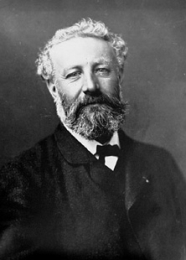THE MAN who held in his hand the document of which this strange assemblage of letters formed the concluding paragraph remained for some moments lost in thought. It contained about a hundred of these lines, with the letters at even distances, and undivided into words. It seemed to have been written many years before, and time had already laid his tawny finger on the sheet of good stout paper which was covered with the hierogly-phics. On what principle had these letters been arranged? He who held the paper was alone able to tell. With such cipher language it is as with the locks of some of our iron safes - in either case the protection is the same. The combinations which they lead to can be counted by millions, and no calculator's life would suffice to express them. Some particular "word" has to be known before the lock of the safe will act, and some "cipher" is necessary before that cryptogram can be read.
Hinweis: Dieser Artikel kann nur an eine deutsche Lieferadresse ausgeliefert werden.
Hinweis: Dieser Artikel kann nur an eine deutsche Lieferadresse ausgeliefert werden.









